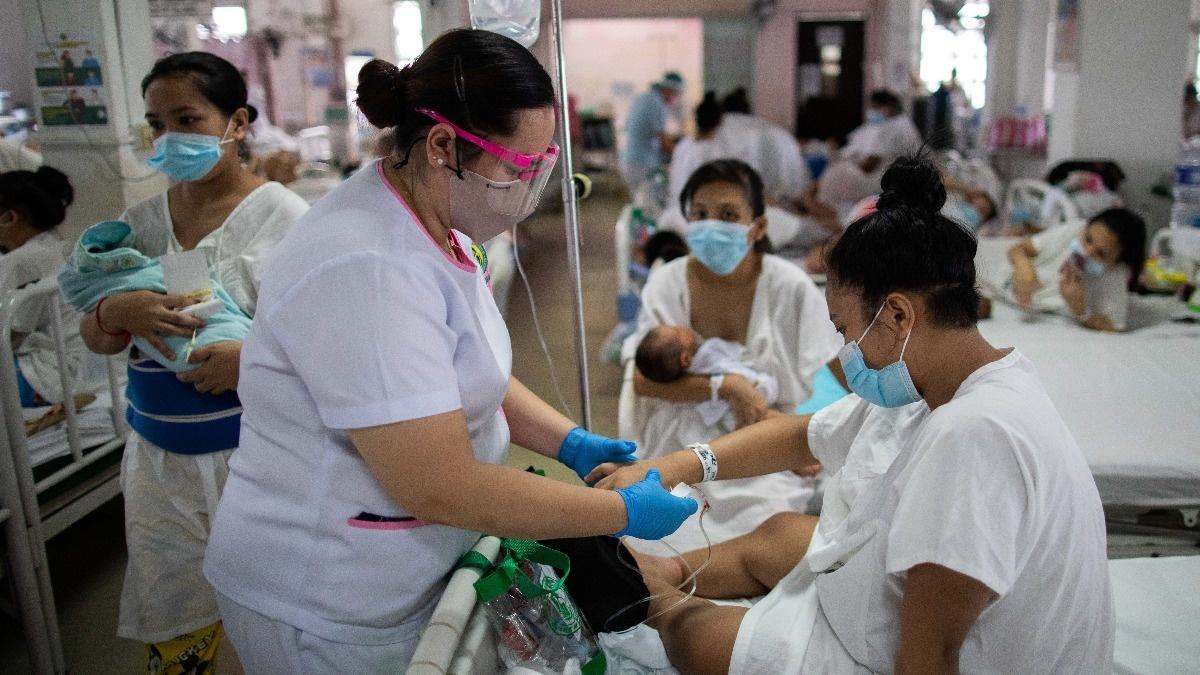Solving the shortage of nurses
Quezon City Rep. Marvin Rillo has sound basis to urge high school graduates across the country to take up nursing in college: The demand is just so high that nurse shortage in the Philippines has reached 127,000 and is expected to more than double to 250,000 by 2030.
“Nurses are in great demand while the supply is short,” Rillo said, adding that nursing presents a “stable and lucrative occupation” not just in the Philippines, but—fortunately and unfortunately—the rest of the world. With economically advanced countries more than willing to pay top dollar or euro for our nurses, with an easy path to citizenship as added sweetener, it is no surprise that as many as half of Filipino nurses want to work abroad. Out of 10, only three to four nurses choose to stay and work in the Philippines, with the rest ending up in other presumably better-paying professions.
Since preventing nurses from leaving for greener pastures abroad is clearly not an option, given their right to go where their skills are more valued, Rillo’s suggestion seems the logical solution, though it is far easier said than done. Indeed, it presents its own set of daunting challenges due to the lack of nursing faculty as well as teaching and training facilities.
Fortunately, the dire situation caused by the dearth of nurses and the lack of resources to keep them here has not been lost on President Marcos. Noting that the shortage of nurses has been affecting the delivery of proper health-care services to Filipinos while acknowledging that the Philippines is competing with richer countries for these medical frontliners, Mr. Marcos has mandated the Commission on Higher Education (CHEd) to come up with solutions to address the problem.
According to CHEd chair J. Prospero de Vera III, the commission has already been rolling out programs in response to the nursing crisis. These include helping those who failed the nursing board exams to meet the standards needed to officially become health-care workers, and adopting an updated curriculum that will allow nursing students to enter the workforce and take on more responsibilities even while still pursuing their nursing degree.
CHEd is also looking to invite nonpracticing nurses to take up their profession, conduct exchange programs with other countries to improve the quality of teaching and facilitate skills transfer, and implement a flexible short-term masteral program to increase the roster of qualified instructors in nursing and medical schools.
The local nursing schools are hard-pressed to make up for lost time since it was only last year when CHEd lifted its 11-year moratorium on the opening of nursing programs by higher education institutions, driven as it was by the need to beef up the health-care workforce after the devastating COVID-19 pandemic decimated the ranks of medical frontliners. Another option already on the table and worth evaluating is the Nursing Scholarship and Return Service Program Act filed by AnaKalusugan party list Rep. Ray Reyes. Under this proposed law, scholarships in state colleges and universities and in private higher education institutions in regions without SUCs will be provided to deserving nursing students, who will then pay back their tuition by serving in their province or municipality, thus increasing the number of health-care workers in these areas.
Also worth encouraging are partnerships between academic institutions and medical networks, such as one recently forged between the Ayala Group’s AC Health and the Yuchengco family’s Mapúa University. Under the partnership, qualified students of Mapúa will be allowed to train in the facilities of AC Health’s Healthway Medical Network, one of the country’s largest private operators of clinics and hospitals. The partnership is seen to help build up a medical workforce that is more resilient and better-trained in the latest hospital technology.
Still, as the government works double time to produce more nursing graduates, it is crucial that the country does not repeat the mistakes that led to the imposition of the CHEd moratorium in 2011, mainly the proliferation of mere diploma mills that resulted in the decline in the nursing board’s passing rate, and a surge in the number of unemployed nursing graduates. This time around, the Marcos administration must ensure that the nursing shortage is resolved with an eye for both quantity and quality of graduates produced, so that Filipino nurses can rightfully be given the support and recognition they deserve, and the motivation for them to choose to work in their home country.
Ultimately, the government must do better by raising the salaries of nurses and other health-care professionals and giving them their benefits. New Health Secretary Teodoro Herbosa has vowed to expedite the payment of over P12 billion in health emergency allowance during the COVID-19 pandemic that the Duterte administration neglected to pay. Witholding the benefits is the kind of shabby treatment that will make programs to increase and retain our nurses and health-care workers go to waste.





















